- Home
- Nathaniel Hawthorne
The Marble Faun; Or, The Romance of Monte Beni - Volume 1 Page 4
The Marble Faun; Or, The Romance of Monte Beni - Volume 1 Read online
Page 4
CHAPTER IV
THE SPECTRE OF THE CATACOMB
"Surely, she cannot be lost!" exclaimed Kenyon. "It is but a moment sinceshe was speaking."
"No, no!" said Hilda, in great alarm. "She was behind us all; and it isa long while since we have heard her voice!"
"Torches! torches!" cried Donatello desperately. "I will seek her, bethe darkness ever so dismal!"
But the guide held him back, and assured them all that there was nopossibility of assisting their lost companion, unless by shouting atthe very top of their voices. As the sound would go very far along theseclose and narrow passages, there was a fair probability that Miriammight hear the call, and be able to retrace her steps.
Accordingly, they all--Kenyon with his bass voice; Donatello with histenor; the guide with that high and hard Italian cry, which makes thestreets of Rome so resonant; and Hilda with her slender scream, piercingfarther than the united uproar of the rest--began to shriek, halloo, andbellow, with the utmost force of their lungs. And, not to prolong thereader's suspense (for we do not particularly seek to interest himin this scene, telling it only on account of the trouble and strangeentanglement which followed), they soon heard a responsive call, in afemale voice.
"It was the signorina!" cried Donatello joyfully.
"Yes; it was certainly dear Miriam's voice," said Hilda. "And here shecomes! Thank Heaven! Thank Heaven!"
The figure of their friend was now discernible by her own torchlight,approaching out of one of the cavernous passages. Miriam came forward,but not with the eagerness and tremulous joy of a fearful girl, justrescued from a labyrinth of gloomy mystery. She made no immediateresponse to their inquiries and tumultuous congratulations; and, as theyafterwards remembered, there was something absorbed, thoughtful, andself-concentrated in her deportment. She looked pale, as well she might,and held her torch with a nervous grasp, the tremor of which was seenin the irregular twinkling of the flame. This last was the chiefperceptible sign of any recent agitation or alarm.
"Dearest, dearest Miriam," exclaimed Hilda, throwing her arms about herfriend, "where have you been straying from us? Blessed be Providence,which has rescued you out of that miserable darkness!"
"Hush, dear Hilda!" whispered Miriam, with a strange little laugh. "Areyou quite sure that it was Heaven's guidance which brought me back?If so, it was by an odd messenger, as you will confess. See; there hestands."
Startled at Miriam's words and manner, Hilda gazed into the duskinesswhither she pointed, and there beheld a figure standing just on thedoubtful limit of obscurity, at the threshold of the small, illuminatedchapel. Kenyon discerned him at the same instant, and drew nearer withhis torch; although the guide attempted to dissuade him, averring that,once beyond the consecrated precincts of the chapel, the apparitionwould have power to tear him limb from limb. It struck the sculptor,however, when he afterwards recurred to these circumstances, that theguide manifested no such apprehension on his own account as he professedon behalf of others; for he kept pace with Kenyon as the latterapproached the figure, though still endeavoring to restrain 'him.
In fine, they both drew near enough to get as good a view of the spectreas the smoky light of their torches, struggling with the massive gloom,could supply.
The stranger was of exceedingly picturesque, and even melodramaticaspect. He was clad in a voluminous cloak, that seemed to be made of abuffalo's hide, and a pair of those goat-skin breeches, with the hairoutward, which are still commonly worn by the peasants of the RomanCampagna. In this garb, they look like antique Satyrs; and, in truth,the Spectre of the Catacomb might have represented the last survivorof that vanished race, hiding himself in sepulchral gloom, and mourningover his lost life of woods and streams.
Furthermore, he had on a broad-brimmed, conical hat, beneath the shadowof which a wild visage was indistinctly seen, floating away, as it were,into a dusky wilderness of mustache and beard. His eyes winked, andturned uneasily from the torches, like a creature to whom midnight wouldbe more congenial than noonday.
On the whole, the spectre might have made a considerable impressionon the sculptor's nerves, only that he was in the habit of observingsimilar figures, almost every day, reclining on the Spanish steps,and waiting for some artist to invite them within the magic realm ofpicture. Nor, even thus familiarized with the stranger's peculiaritiesof appearance, could Kenyon help wondering to see such a personage,shaping himself so suddenly out of the void darkness of the catacomb.
"What are you?" said the sculptor, advancing his torch nearer. "And howlong have you been wandering here?"
"A thousand and five hundred years!" muttered the guide, loud enough tobe heard by all the party. "It is the old pagan phantom that I told youof, who sought to betray the blessed saints!"
"Yes; it is a phantom!" cried Donatello, with a shudder. "Ah, dearestsignorina, what a fearful thing has beset you in those dark corridors!"
"Nonsense, Donatello," said the sculptor. "The man is no more a phantomthan yourself. The only marvel is, how he comes to be hiding himself inthe catacomb. Possibly our guide might solve the riddle."
The spectre himself here settled the point of his tangibility, at allevents, and physical substance, by approaching a step nearer, and layinghis hand on Kenyon's arm.
"Inquire not what I am, nor wherefore I abide in the darkness," said he,in a hoarse, harsh voice, as if a great deal of damp were clustering inhis throat. "Henceforth, I am nothing but a shadow behind her footsteps.She came to me when I sought her not. She has called me forth, and mustabide the consequences of my reappearance in the world."
"Holy Virgin! I wish the signorina joy of her prize," said the guide,half to himself. "And in any case, the catacomb is well rid of him."
We need follow the scene no further. So much is essential to thesubsequent narrative, that, during the short period while astray inthose tortuous passages, Miriam had encountered an unknown man, andled him forth with her, or was guided back by him, first into thetorchlight, thence into the sunshine.
It was the further singularity of this affair, that the connection, thusbriefly and casually formed, did not terminate with the incidentthat gave it birth. As if her service to him, or his service to her,whichever it might be, had given him an indefeasible claim on Miriam'sregard and protection, the Spectre of the Catacomb never long allowedher to lose sight of him, from that day forward. He haunted herfootsteps with more than the customary persistency of Italianmendicants, when once they have recognized a benefactor. For daystogether, it is true, he occasionally vanished, but always reappeared,gliding after her through the narrow streets, or climbing the hundredsteps of her staircase and sitting at her threshold.
Being often admitted to her studio, he left his features, or some shadowor reminiscence of them, in many of her sketches and pictures. The moralatmosphere of these productions was thereby so influenced, that rivalpainters pronounced it a case of hopeless mannerism, which would destroyall Miriam's prospects of true excellence in art.
The story of this adventure spread abroad, and made its way beyondthe usual gossip of the Forestieri, even into Italian circles, where,enhanced by a still potent spirit of superstition, it grew far morewonderful than as above recounted. Thence, it came back among theAnglo-Saxons, and was communicated to the German artists, who so richlysupplied it with romantic ornaments and excrescences, after theirfashion, that it became a fantasy worthy of Tieck or Hoffmann. Fornobody has any conscience about adding to the improbabilities of amarvellous tale.
The most reasonable version of the incident, that could anywise berendered acceptable to the auditors, was substantially the one suggestedby the guide of the catacomb, in his allusion to the legend of Memmius.This man, or demon, or man-demon, was a spy during the persecutionsof the early Christians, probably under the Emperor Diocletian, andpenetrated into the catacomb of St. Calixtus, with the malignant purposeof tracing out the hiding-places of the refugees. But, while he stolecraftily through those dark corridors, he chanced to come upon a litt
lechapel, where tapers were burning before an altar and a crucifix, anda priest was in the performance of his sacred office. By divineindulgence, there was a single moment's grace allowed to Memmius, duringwhich, had he been capable of Christian faith and love, he might haveknelt before the cross, and received the holy light into his soul, andso have been blest forever. But he resisted the sacred impulse. Assoon, therefore, as that one moment had glided by, the light of theconsecrated tapers, which represent all truth, bewildered the wretchedman with everlasting error, and the blessed cross itself was stampedas a seal upon his heart, so that it should never open to receiveconviction.
Thenceforth, this heathen Memmius has haunted the wide and drearyprecincts of the catacomb, seeking, as some say, to beguile new victimsinto his own misery; but, according to other statements, endeavoring toprevail on any unwary visitor to take him by the hand, and guide him outinto the daylight. Should his wiles and entreaties take effect, however,the man-demon would remain only a little while above ground. He wouldgratify his fiendish malignity by perpetrating signal mischief on hisbenefactor, and perhaps bringing some old pestilence or other forgottenand long-buried evil on society; or, possibly, teaching the modernworld some decayed and dusty kind of crime, which the antique Romansknew,--and then would hasten back to the catacomb, which, after so longhaunting it, has grown his most congenial home.
Miriam herself, with her chosen friends, the sculptor and the gentleHilda, often laughed at the monstrous fictions that had gone abroad inreference to her adventure. Her two confidants (for such they were,on all ordinary subjects) had not failed to ask an explanation of themystery, since undeniably a mystery there was, and one sufficientlyperplexing in itself, without any help from the imaginative faculty.And, sometimes responding to their inquiries with a melancholy sort ofplayfulness, Miriam let her fancy run off into wilder fables than anywhich German ingenuity or Italian superstition had contrived.
For example, with a strange air of seriousness over all her face, onlybelied by a laughing gleam in her dark eyes, she would aver that thespectre (who had been an artist in his mortal lifetime) had promisedto teach her a long-lost, but invaluable secret of old Roman frescopainting. The knowledge of this process would place Miriam at the headof modern art; the sole condition being agreed upon, that she shouldreturn with him into his sightless gloom, after enriching a certainextent of stuccoed wall with the most brilliant and lovely designs. Andwhat true votary of art would not purchase unrivalled excellence, evenat so vast a sacrifice!
Or, if her friends still solicited a soberer account, Miriam replied,that, meeting the old infidel in one of the dismal passages of thecatacomb, she had entered into controversy with him, hoping to achievethe glory and satisfaction of converting him to the Christian faith. Forthe sake of so excellent a result; she had even staked her own salvationagainst his, binding herself to accompany him back into his penal gloom,if, within a twelvemonth's space, she should not have convinced him ofthe errors through which he had so long groped and stumbled. But, alas!up to the present time, the controversy had gone direfully in favor ofthe man-demon and Miriam (as she whispered in Hilda's ear) had awfulforebodings, that, in a few more months, she must take an eternalfarewell of the sun!
It was somewhat remarkable that all her romantic fantasies arrived atthis self-same dreary termination,--it appeared impossible for her evento imagine any other than a disastrous result from her connection withher ill-omened attendant.
This singularity might have meant nothing, however, had it not suggesteda despondent state of mind, which was likewise indicated by many othertokens. Miriam's friends had no difficulty in perceiving that, inone way or another, her happiness was very seriously compromised. Herspirits were often depressed into deep melancholy. If ever she was gay,it was seldom with a healthy cheerfulness. She grew moody, moreover, andsubject to fits of passionate ill temper; which usually wreaked itselfon the heads of those who loved her best. Not that Miriam's indifferentacquaintances were safe from similar outbreaks of her displeasure,especially if they ventured upon any allusion to the model. In suchcases, they were left with little disposition to renew the subject, butinclined, on the other hand, to interpret the whole matter as much toher discredit as the least favorable coloring of the facts would allow.
It may occur to the reader, that there was really no demand for so muchrumor and speculation in regard to an incident, Which might well enoughhave been explained without going many steps beyond the limits ofprobability. The spectre might have been merely a Roman beggar, whosefraternity often harbor in stranger shelters than the catacombs; or oneof those pilgrims, who still journey from remote countries to kneeland worship at the holy sites, among which these haunts of the earlyChristians are esteemed especially sacred. Or, as was perhaps a moreplausible theory, he might be a thief of the city, a robber of theCampagna, a political offender, or an assassin, with blood upon hishand; whom the negligence or connivance of the police allowed to takerefuge in those subterranean fastnesses, where such outlaws have beenaccustomed to hide themselves from a far antiquity downward. Or he mighthave been a lunatic, fleeing instinctively from man, and making it hisdark pleasure to dwell among the tombs, like him whose awful cry echoesafar to us from Scripture times.
And, as for the stranger's attaching himself so devotedly to Miriam, herpersonal magnetism might be allowed a certain weight in the explanation.For what remains, his pertinacity need not seem so very singular tothose who consider how slight a link serves to connect these vagabondsof idle Italy with any person that may have the ill-hap to bestowcharity, or be otherwise serviceable to them, or betray the slightestinterest in their fortunes.
Thus little would remain to be accounted for, except the deportment ofMiriam herself; her reserve, her brooding melancholy, her petulance,and moody passion. If generously interpreted, even these morbid symptomsmight have sufficient cause in the stimulating and exhaustive influencesof imaginative art, exercised by a delicate young woman, in the nervousand unwholesome atmosphere of Rome. Such, at least, was the view of thecase which Hilda and Kenyon endeavored to impress on their own minds,and impart to those whom their opinions might influence.
One of Miriam's friends took the matter sadly to heart. This was theyoung Italian. Donatello, as we have seen, had been an eyewitness ofthe stranger's first appearance, and had ever since nourished a singularprejudice against the mysterious, dusky, death-scented apparition.It resembled not so much a human dislike or hatred, as one of thoseinstinctive, unreasoning antipathies which the lower animals sometimesdisplay, and which generally prove more trustworthy than the acutestinsight into character. The shadow of the model, always flung into thelight which Miriam diffused around her, caused no slight trouble toDonatello. Yet he was of a nature so remarkably genial and joyous, sosimply happy, that he might well afford to have something subtractedfrom his comfort, and make tolerable shift to live upon what remained.

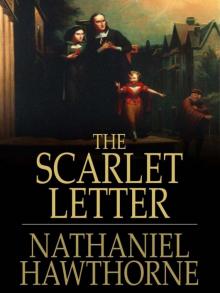 The Scarlet Letter
The Scarlet Letter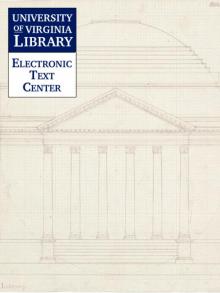 Young Goodman Brown : By Nathaniel Hawthorne - Illustrated
Young Goodman Brown : By Nathaniel Hawthorne - Illustrated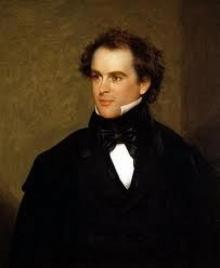 The Birthmark
The Birthmark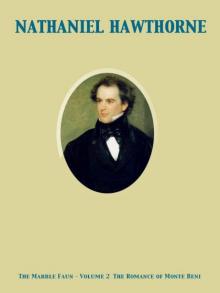 The Marble Faun; Or, The Romance of Monte Beni - Volume 1
The Marble Faun; Or, The Romance of Monte Beni - Volume 1 The Minister's Black Veil
The Minister's Black Veil The Great Stone Face, and Other Tales of the White Mountains
The Great Stone Face, and Other Tales of the White Mountains The House of the Seven Gables
The House of the Seven Gables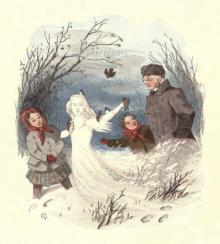 The Snow Image
The Snow Image The Blithedale Romance
The Blithedale Romance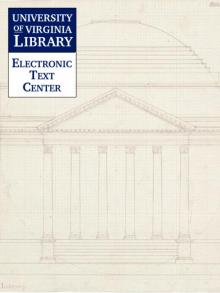 Rappaccini's Daughter: By Nathaniel Hawthorne - Illustrated
Rappaccini's Daughter: By Nathaniel Hawthorne - Illustrated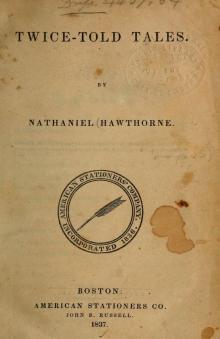 Twice-Told Tales
Twice-Told Tales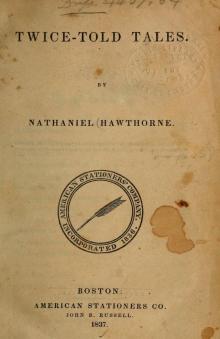 Twice Told Tales
Twice Told Tales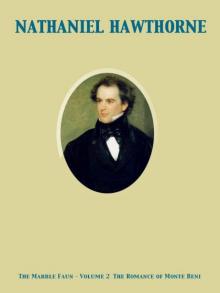 The Marble Faun; Or, The Romance of Monte Beni - Volume 2
The Marble Faun; Or, The Romance of Monte Beni - Volume 2_preview.jpg) Footprints on the Sea-Shore (From Twice Told Tales)
Footprints on the Sea-Shore (From Twice Told Tales) Main Street
Main Street_preview.jpg) The Seven Vagabonds (From Twice Told Tales)
The Seven Vagabonds (From Twice Told Tales) Fanshawe
Fanshawe Chippings with a Chisel
Chippings with a Chisel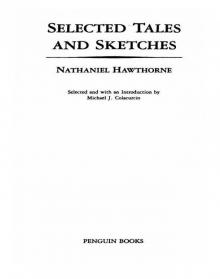 Selected Tales and Sketches
Selected Tales and Sketches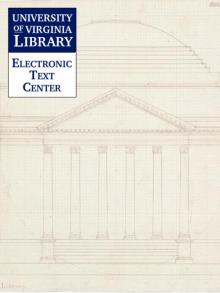 Young Goodman Brown
Young Goodman Brown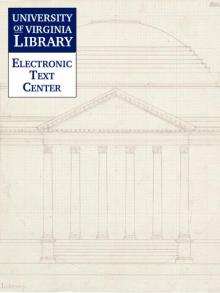 Roger Malvin's Burial
Roger Malvin's Burial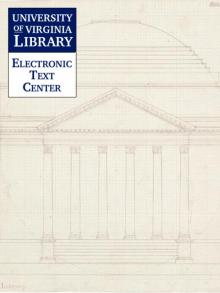 The Prophetic Pictures
The Prophetic Pictures The Village Uncle
The Village Uncle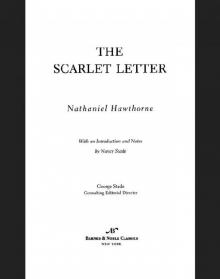 Scarlet Letter (Barnes & Noble Classics Series)
Scarlet Letter (Barnes & Noble Classics Series)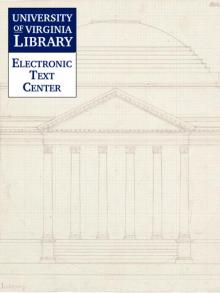 The Procession of Life
The Procession of Life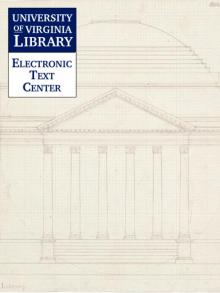 Drowne's Wooden Image
Drowne's Wooden Image Hawthorne's Short Stories
Hawthorne's Short Stories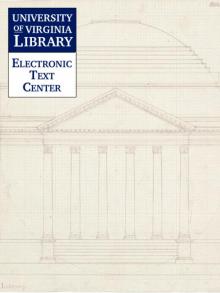 My Kinsman, Major Molineux
My Kinsman, Major Molineux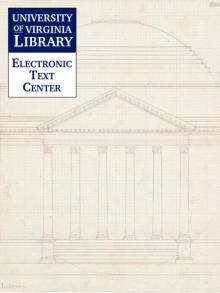 Legends of the Province House
Legends of the Province House Foot-Prints on the Sea-Shore
Foot-Prints on the Sea-Shore The Haunted Quack
The Haunted Quack Tanglewood Tales
Tanglewood Tales The Seven Vagabonds
The Seven Vagabonds Mosses from an Old Manse, Volume 2
Mosses from an Old Manse, Volume 2 The Canterbury Pilgrims
The Canterbury Pilgrims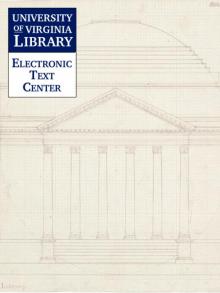 Wakefield
Wakefield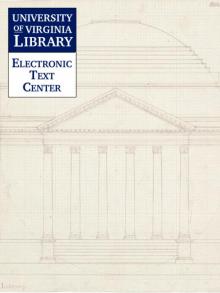 The Gray Champion
The Gray Champion The White Old Maid
The White Old Maid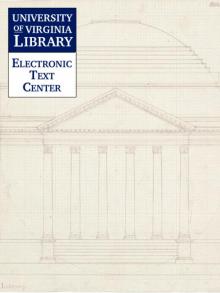 The Snow-Image: A Childish Miracle
The Snow-Image: A Childish Miracle The Gentle Boy
The Gentle Boy Mr. Higginbotham's Catastrophe
Mr. Higginbotham's Catastrophe![The Threefold Destiny: A Fairy Legend, by Ashley Allen Royce [pseud.] Read online](http://i1.bookreadfree.com/i2/04/10/the_threefold_destiny_a_fairy_legend_by_ashley_allen_royce_pseud__preview.jpg) The Threefold Destiny: A Fairy Legend, by Ashley Allen Royce [pseud.]
The Threefold Destiny: A Fairy Legend, by Ashley Allen Royce [pseud.]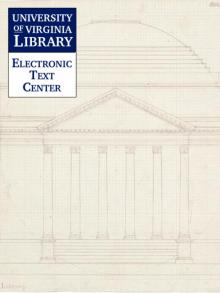 Lady Eleanore`s Mantle
Lady Eleanore`s Mantle The Great Carbuncle
The Great Carbuncle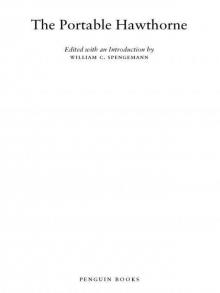 The Portable Hawthorne (Penguin Classics)
The Portable Hawthorne (Penguin Classics) True Stories from History and Biography
True Stories from History and Biography